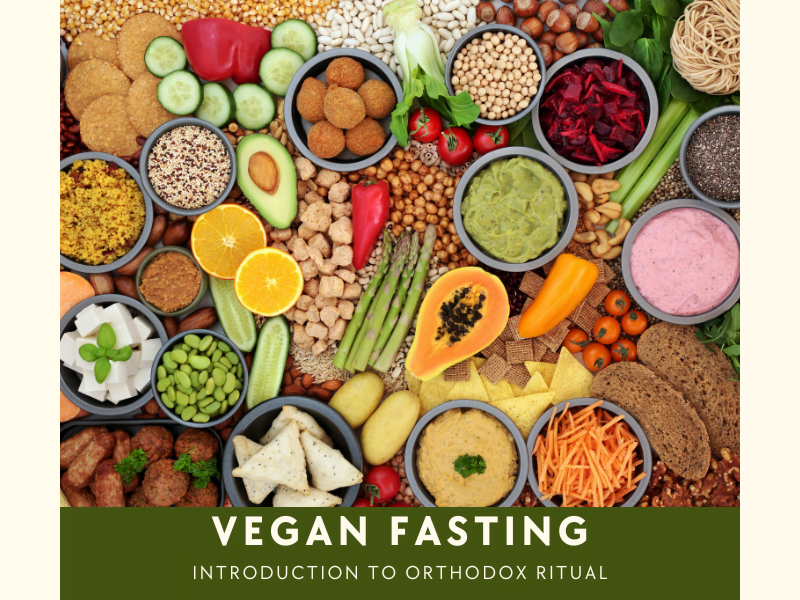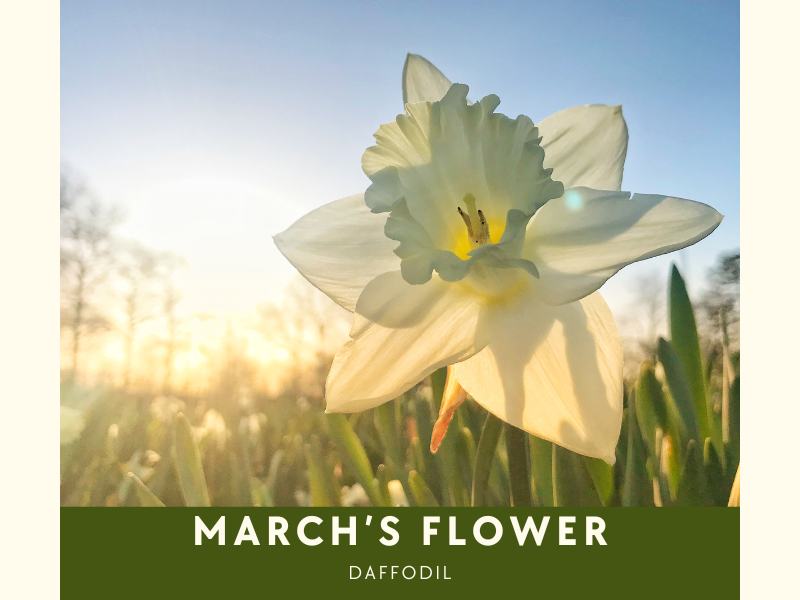Introduction to Orthodox Vegan Fasting: A Beginner’s Guide from a not very religious orthodox standpoint
Orthodox vegan fasting I have done a few times over the last few years. Its not something I was raised to do but I was familiar with the concept. My family just never did followed it, so I did not either. I got interested in it as I have been experiencing bloating and issues in my gut. Overall feeling the need of a full detox. In Bulgarian Orthodox Christian fasting is going through the whole year as a recommendation on certain days (like eat fish on Wednesday) but I opted in for the strict dates fasting 40 days before Christmas and Easter.
I remember the first fast I did it. The beginning was nice and exciting however later on there were feelings of hunger and change of moods. Sometimes I just wanted to quit but then things turned around for me. Around week three, I felt as the best version of myself again. My mind was in a better place and my body was following. The feeling of lightness and no bloating felt so new and comfortable! My gut was celebrating for all the veggies and fruits. Because of the initial results I decided to challenge myself 2 times a year to do this Orthodox vegan detox. In this article I will share what I’ve learned about the Orthodox vegan ritual fasting and my cultural heritage.
What is Orthodox Vegan Fasting?
Orthodox vegan fasting is a dietary practice observed by people mainly from the Eastern Orthodox Christian faith. Rooted in centuries-old traditions, this ritual involves abstaining from certain foods, particularly animal products, during designated periods throughout the year and especially around the holidays Christmas and Easter. Instead, it is suggested to adhere to a plant-based diet, emphasising fruits, vegetables, grains, legumes, nuts, and seeds.
The Importance of Fasting in Orthodox Christianity
Fasting holds significant importance within the Orthodox Christian religion, with roots dating back to the early days of the church and carried to this day. It is considered a spiritual discipline that allows people to detach from distractions and cultivate self-control. The idea is that one can become closer to God. In Orthodox theology, fasting is not simply about abstaining from certain foods but also about cultivating virtues such as temperance, gratitude, and empathy.

The Practice of Orthodox Vegan Fasting
Fasting Seasons and Periods
Orthodox vegan fasting is practiced during several designated periods throughout the year. Тhe most notable of which are in December/January and around April/May. These fasting seasons typically last for 40 days leading up to major religious observances such as Easter and Christmas. Additionally, Orthodox Christians may fast on Wednesdays and Fridays year-round, commemorating the betrayal and crucifixion of Jesus Christ.
Guidelines for Orthodox Vegan Fasting
While the specific guidelines for Orthodox vegan fasting may vary among different jurisdictions, there are some similarities that are generally observed all around. Followers abstain from all animal products, including meat, dairy, eggs, and sometimes fish, as well as foods cooked with animal-derived ingredients such as butter. I usually follow an online calendar for the specific rules on the fasting dates as they change especially with the Easter observation. The December fast is quite tolerant with fish according to the Bulgarian Orthodoxy which I followed. Additionally, fasting may also entail restrictions on alcohol, depending on the traditions of the particular church or monastery. I followed the alcohol restrain but still allowed myself a drink or two on occasion as I was never a big drinker anyway.
Exceptions and Modifications
It’s important to note that Orthodox vegan fasting is not a one-size-fits-all practice and that’s one more thing I’ve learned to appreciate. Exceptions are made for individuals with health concerns, dietary restrictions, pregnant or nursing mothers, young kids, older people or any other valid reasons. Like for me it was going on holiday and not trying local cuisine.
Stay tuned for the next sections, where we’ll delve deeper into the spiritual significance of Orthodox vegan fasting. Going to explore practical tips for observing the fast, and address common misconceptions. Whether you’re new to the practice or a seasoned practitioner, there’s much to discover and appreciate about this ancient tradition of self-discipline and devotion.
The Spiritual Significance of Orthodox Vegan Fasting
Cultivating Spiritual Discipline
At its core, Orthodox vegan fasting is not just about dietary restrictions but about cultivating spiritual discipline and deepening one’s relationship with himself. By voluntarily abstaining from certain foods, believers exercise self-control and discipline over their physical desires, allowing them to focus on being more kind to each other, be generous to others, meditate, pray and calm their mind.
Embracing Simplicity and Detachment
Fasting serves as a reminder of the transient nature of the abundance of earthly pleasures. It focuses on the importance of prioritising spiritual nourishment and self love over material comforts. By simplifying their diet and abstaining from indulgent foods, followers of Orthodox vegan fasting learn to detach themselves from material things and hopefully shift focus on the eternal values of faith, hope, and love.
Practicing Compassion and Empathy
It also emphasises the importance of compassion and empathy towards all living beings. By abstaining from the consumption of animal products, believers express solidarity with the suffering of animals and affirm their commitment to non-violence and respect for all creatures of God’s creation.
Drawing Closer to God and Community
Orthodox vegan fasting is also an opportunity for believers to draw closer to God through prayer, repentance, and acts of charity. By participating in the communal activities individuals can strengthen their bonds of fellowship and solidarity, experiencing a sense of communal unity. Community is a very healthy way of people to exist and be with each other as it has been observed throughout the years.
Reflecting on Spiritual Renewal
Fasting serves as a time of spiritual renewal and preparation. Through self-examination, repentance, and prayer, believers seek to cleanse their hearts and minds of sin. Working hard to renew their commitment to living lives of faith, virtue, and holiness.
Stay tuned for the final section, where we’ll offer practical tips for observing Orthodox vegan fasting. Address common questions and misconceptions, and share resources for further exploration. Whether you’re seeking to deepen your spiritual practice or simply curious about the traditions of Orthodox Christianity, there’s much to learn and appreciate about this ancient tradition of fasting.
Practical Tips for Observing Orthodox Vegan Fasting
Planning Ahead
It’s essential to plan your meals in advance and ensure you have a variety of plant-based ingredients on hand. Take some time to research vegan recipes and meal ideas that align with the fasting guidelines. Consider stocking your pantry with staples such as grains, legumes, fruits, and vegetables. For me, it really helped to do grocery delivery from a local store. I vouch for the delivery option as it doesn’t allow me to add that extra bag of chips when I’m doing groceries at the shop. Delivery and selecting my meals in advance made it easier. Nowadays there are so many plant based options of meat and dairy products to choose and try. Sometimes they are even better than the meat option! Explore and try different things!
Focus on Whole Foods
During fasting periods and in general its better to prioritise whole, unprocessed foods that are naturally vegan and nutritious. Incorporate plenty of fruits, vegetables, whole grains, beans, lentils, nuts, and seeds into your meals. Experiment with different flavour combinations, cooking techniques or try recipes from different countries to keep your meals interesting and enjoyable.
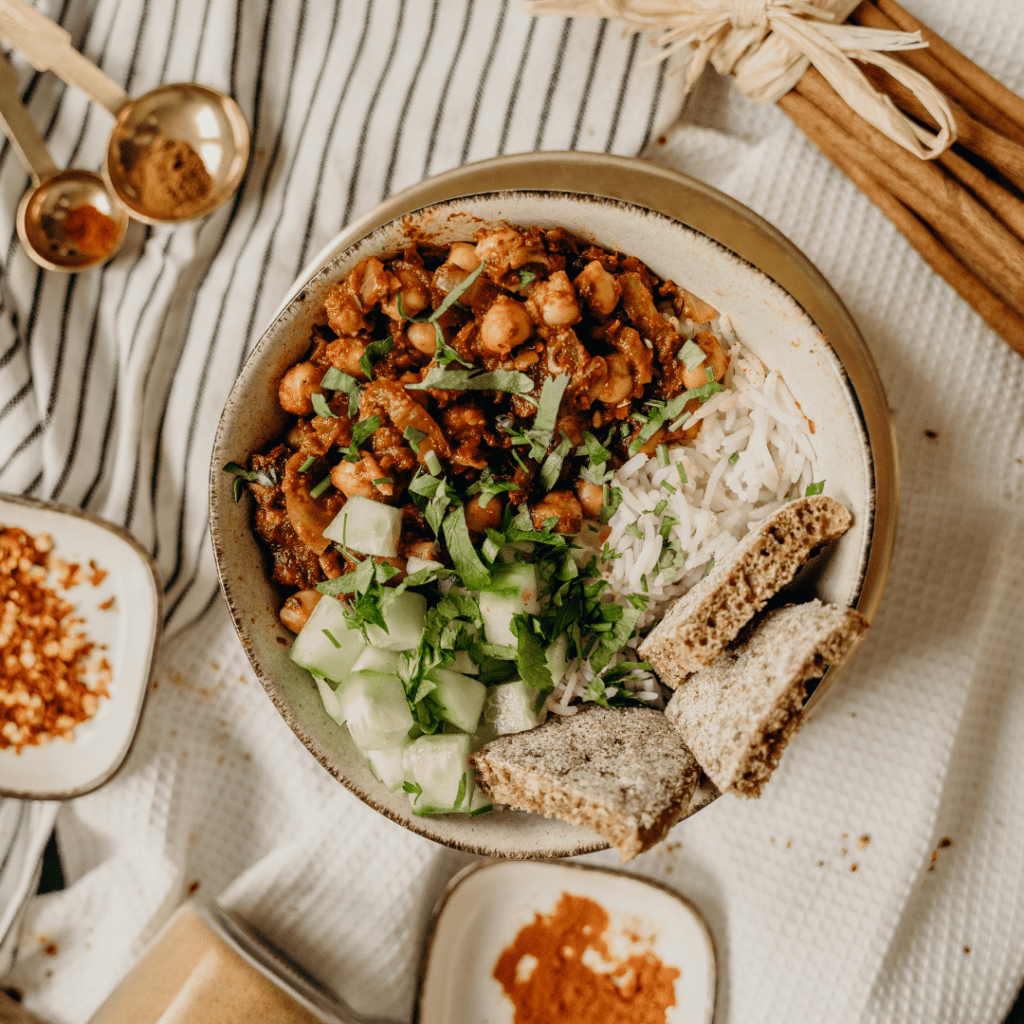
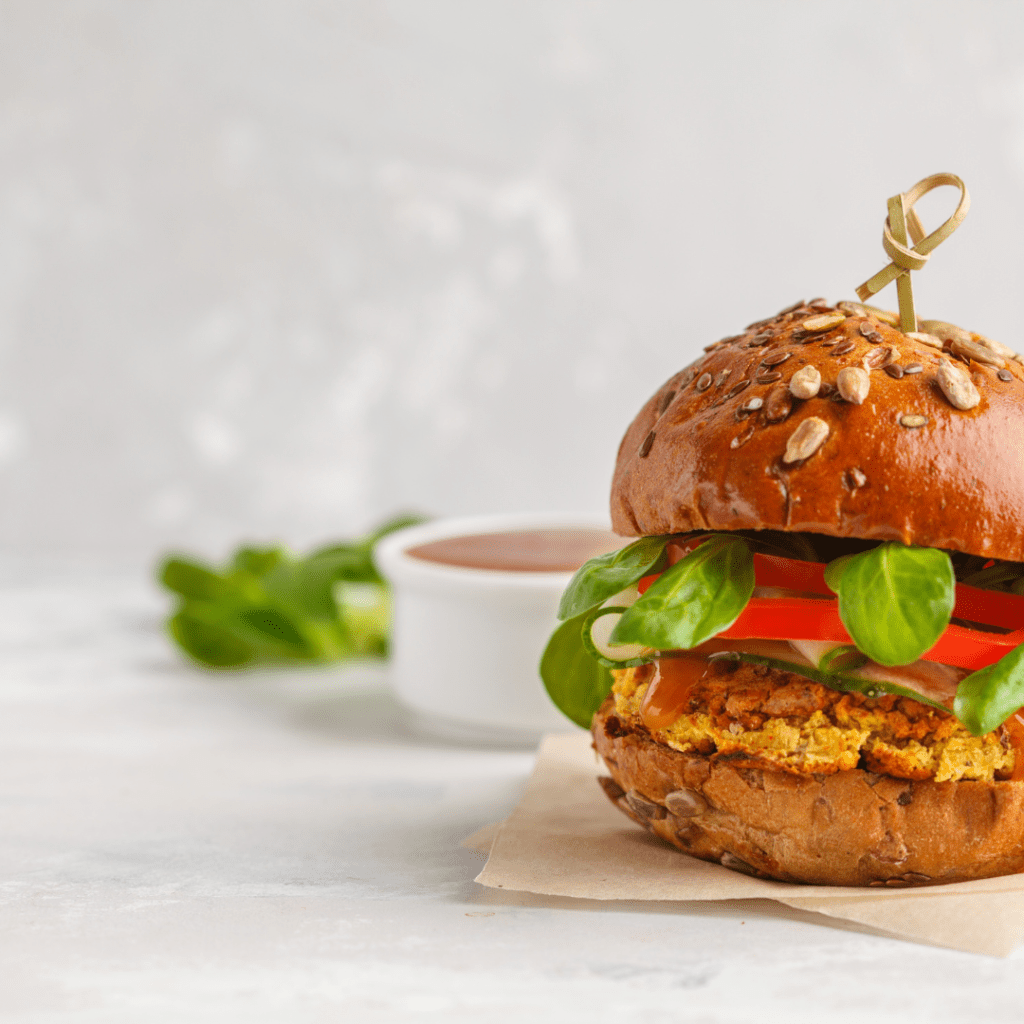
Read Labels Carefully
When shopping be sure to read the ingredient labels carefully to ensure they comply with fasting guidelines. You will be surprised what they can sneak inside. Look for certified vegan products or those labeled as suitable for vegans to simplify your shopping experience. Check the calorie indication as well, I’ve seen a vegan nut based cheese that equaled the calories of a four cheeses pizza.
Stay Hydrated

It’s important to stay hydrated during fasting periods, so be sure to drink plenty of water throughout the day. Just grab a bottle and carry it with you thought your day. My favourite for hot or cold beverages is forever the Dopper bottle, this Dutch brand says it simple ‘Fighting plastic pollution, one single-use water bottle at a time’. Opt in for a bottle that is holding plastic pollution as a mission, as we all can do our little part in this battle.
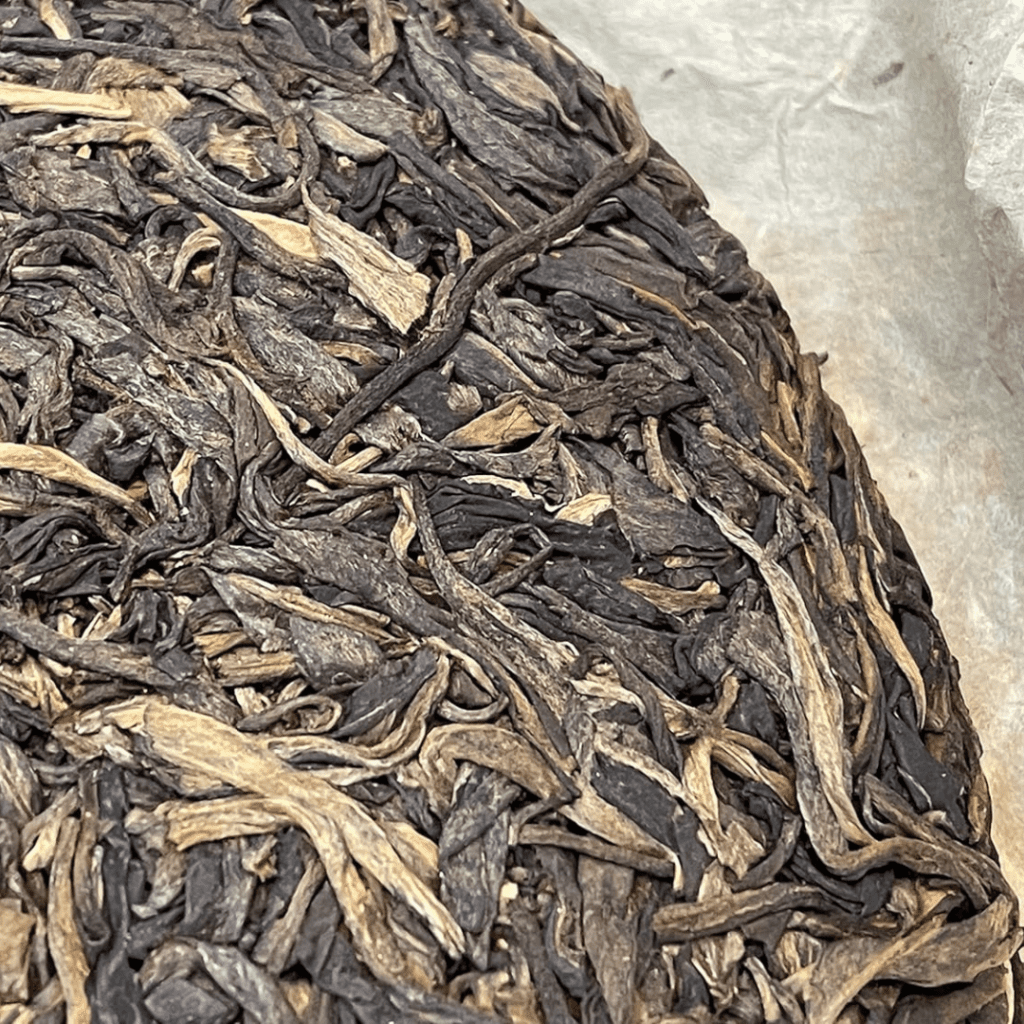
Teas are a great way for me to keep my hunger levels in check and enjoy the magic of the herb teas we got from our recent China trip. One kind that I particularly enjoy ever since is pu-erh. Its a post-fermented green tea, which means that the leaves go through a microbial fermentation process after they have been dried and rolled already. That causes the leaves to darken and change in delicious flavour depending on the year you prefer.
We opted in for similar to these kinds here -> 15y aged kind. An interesting folk story says that Chinese princess used to drink it to stay slim as it was meant to aid in digestion. Its loaded with polyphenols which cleanses toxins and free radicals. In addition, Pu-erh tea contains statins that lower cholesterol. It also contains a very diverse range of bacteria to support gut health. The recommended time to take it is 30min after your meal. I love the taste of Numi for every day use as its more convenient and easy to use. For that more authentic and special feeling, I will go for SHENG JIA YUAN and they have become my little evening treat. As much as I loved travelling in China and buying the tea directly from the farmers, I cannot go often there, so ordering online from trusted brands is a perfect option.

Goes without saying but try to lower your intake of sugary drinks, caffeinated beverages, and alcohol. These can dehydrate the body and detract from the fasting experience. Instead try Coconut water! It’s an excellent option for staying hydrated throughout your day. As I don’t live on a tropical island I love to stock on my Vita Coco supply.
Listen to Your Body
Listen to your body’s hunger and fullness cues and adjust your meal sizes and timing accordingly. While it’s important to honour the fasting guidelines, it’s equally important to prioritise your health and well-being. If you find yourself feeling weak, dizzy, or excessively hungry, consider modifying your fasting regimen. Try seeking guidance from a healthcare professional or spiritual advisor. The goal here is not to do a quick diet and make the body suffer serious health consequences.
Seek Support and Community
Fasting can be challenging, especially for those who are new to the practice. We have a saying that a shared problem its already half a problem so do never shy away to seek support from fellow believers, friends, or family members who understand and respect your fasting commitments. Consider participating in online communities where you can share experiences, swap recipe ideas, and offer encouragement to one another.
Practice Gratitude and Mindfulness
Approach fasting with an attitude of gratitude and mindfulness, recognising it as a sacred opportunity for spiritual growth and renewal. Use this time to reflect on your blessings, cultivate a spirit of humility and gratitude, and deepen your connection to others. Embrace the challenges and rewards of fasting with a spirit of joy and anticipation, knowing that it is a time-honoured tradition that has the power to transform hearts and lives.
—
In this final section, we’ve offered practical tips for observing Orthodox vegan fasting. Emphasising the importance of planning, whole foods, hydration, listening to your body, seeking support, and practicing gratitude and mindfulness. By following these guidelines and approaching fasting with intention and purpose, you can experience the spiritual benefits and blessings that come from this ancient tradition of self-discipline. Whether you’re embarking on your first fast or are a seasoned practitioner, may you find joy, fulfilment, and spiritual growth in the practice of Orthodox vegan fasting.
Affiliate disclosere: As an Amazon Associate, we may earn small commissions from qualifying purchases from Amazon.com. Thank you for supporting us! You can learn more about our editorial policies.
